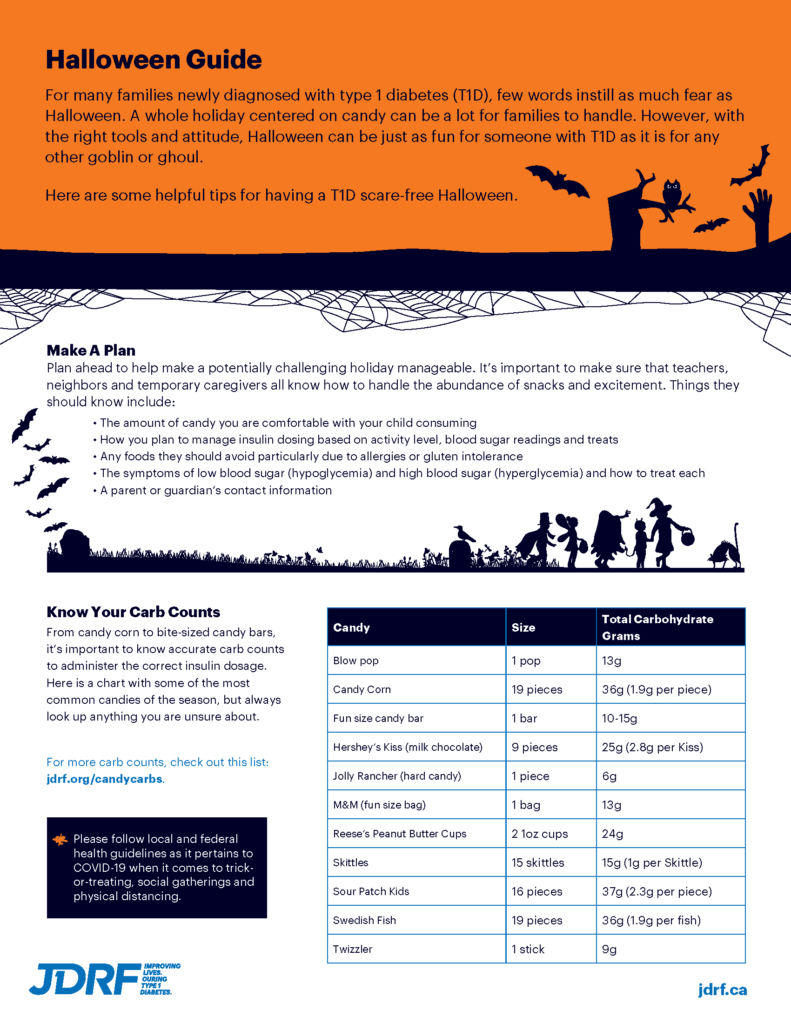October 28, 2020





Thanks to the advocacy efforts of adults, parents and others touched by type 1 diabetes (T1D), the Yukon government has moved to fully reimburse continuous glucose monitoring (CGM) and flash glucose monitoring (Flash GM).
This past September, the government announced it would begin covering CGM and Flash GM for youth up to 18 years old, and Flash GM for adults, however advocates with the Yukon T1D Support Group demanded the coverage of both devices for all – regardless of age.
The group’s campaign, backed by local businesses, convinced the government to move forward with its original commitment – making Yukon the first jurisdiction in Canada to embrace #AccessForAll
Meanwhile in Saskatchewan, the governing Saskatchewan Party who’ve just be re-elected have promised to reimburse CGM for those under age 25 and expand insulin pump coverage to all ages. The Opposition NDP made a similar promise, and we’ll be following up in the coming weeks to make sure it’s been fulfilled. This is great news for those with type 1 diabetes in the province. These commitments follow advocacy efforts by parent and adult advocates including the Halvorson family, who were on hand for the announcement. Hartley Halvorson, age 4 and mother Aly will be participating in this year’s Kids for a Cure Lobby Day – Home Edition.
B.C. also heads to the polls in October, though a commitment to fund CGM and Flash GM was not included in party platforms – despite the fact that BC Pharmacare had been reviewing the possibility of coverage for advanced glucose monitoring systems prior to the election.
JDRF participated alongside Diabetes Canada and Type 1 Together in public and stakeholder consultations held by BC Pharmaceutical Services in August and September.
Efforts continue in Ontario to convince the government to expand access beyond Flash GM (currently covered for those under age 25, on disability or receiving social assistance who have no private insurance coverage and those over age 65). But our efforts haven’t stopped. Thanks to your support, we have produced a new pre-budget submission in October, met with officials and arranged for testimony as part of the Minister of Finance’s pre-budget consultations.
There’s still time to take action! Send an email to your provincial representative, demanding CGM and Flash GM coverage today.

Prince Edward Island resident and JDRF advocate Brooks Roche is getting vocal about #AccessForAll.
The 23-year-old young man has taken it upon himself to create an online petition asking Canadians to lobby against the government of P.E.I’s age restrictions when it comes to diabetes technology coverage.
A strong advocate for the type 1 diabetes (T1D) community, Brooks is also one of 18 members of the Prime Minister’s Youth Council — a non-partisan initiative run by the federal government.
After living with type 1 diabetes for almost two decades, he recognizes the struggles that come with the disease, and the importance of diabetes technology when managing it.
“The benefits of this are, frankly, enormous,” he said, adding that technology like insulin pumps give him peace of mind when managing his disease – taking the burden of manual injections away from him.
An insulin pump, combined with diabetes supplies can cost up to $10,000 per patient – a significant fee considering the role it plays in keeping him, and others in the T1D community alive.
“This is a chance for Prince Edward Island to lead on health policy and for us to set a standard for our neighbours to follow, rather than the other way around.” – Brooks Roche
In P.E.I, funding for insulin pumps was only available for people up to 18 years of age until recently, when the government increased funding for those up to 25 years old. Like Brooks, JDRF believes the age restriction should be lifted entirely.
Over 300,000 Canadians live with T1D, and 85% of people living with the disease are adults. Brooks believes that these age restrictions simply don’t make sense, considering the general population of those who live with T1D, and the role that diabetes technology plays in helping them manage their disease.
“This is a chance for Prince Edward Island to lead on health policy and for us to set a standard for our neighbours to follow, rather than the other way around.”
To read more about what JDRF is doing to demand #AccessForAll, click here.
People like Brooks need your help. And YOU can take action today.
Sponsored Content


Back to school includes a lot more than just a backpack, notebooks, and a pencil case. Getting back into the school routine requires a lot of preparation and planning for kids who live with type 1 diabetes (T1D)
In a perfect world, all school teachers and staff would understand how to manage T1D. Since this isn’t always the case, communication is key. It is important to meet and educate the teachers on T1D before school begins. Providing information to the school as well as classmates on T1D management, and especially recognizing the signs of hypoglycemia (low blood sugar), will help kids feel comfortable returning to school and importantly will keep them safe and healthy, no matter what the school day brings.
Here’s some information on what can cause hypoglycemia, and how to recognize the signs:
Low blood sugar can be caused by the following1:
What are the symptoms?
It is important always to BE PREPARED!
In case blood sugar levels fall below 4 mmol/L, school staff should be provided in advance with fast-acting glucose (e.g. Dex4 tablets, gels, and liquids). If teachers notice a difference in behaviour related to the signs of low blood sugar or children feel any of the warning signs of hypoglycemia, verify the child’s blood glucose levels immediately, and treat low blood sugar promptly if needed. In the event that a blood glucose meter is not available but low blood sugar is suspected, treat right away.
To treat, the child should eat or drink fast-acting sugar such as1:
Afterwards, wait 15 minutes, then check blood sugar again if possible. If blood sugar cannot be tested, monitor the child closely to ensure symptoms of hypoglycemia improve. If symptoms persist and/or glucose is still below 4 mmol/L, try one of the above methods again, wait 15 minutes, and do another glucose test. If lunch is more than one hour away, provide a snack with both carbohydrates and protein.
As low blood sugar can happen at anytime, it is important to be prepared. Dex4 Glucose products help raise glucose levels FAST.
Additional Resources:
The JDRF Mentor Program provides one-on-one support to families and individuals living with type 1 diabetes (T1D). Trained volunteers that have experienced understand the daily challenges of living with T1D are there to provide emotional support, and connect you with resources in your local area.
The Diabetes Hope Foundation supports mentorship programs for youth. Buddy systems are available, for more information visit www.jdrf.ca/living-with-t1d/newly-diagnosed/mentor-program-request-form and www.diabeteshopefoundation.com/mentor-biographies
1 Canadian Diabetes Association Clinical Practice Guidelines Expert Committee. Canadian Diabetes Association 2013 Clinical Practice Guidelines for the Prevention and Management of Diabetes in Canada. Can J Diabetes 2013;37(suppl 1):S1-S212.
Disclaimer
Information in this article is provided for informational purposes only and is not a substitute for professional medical advice.